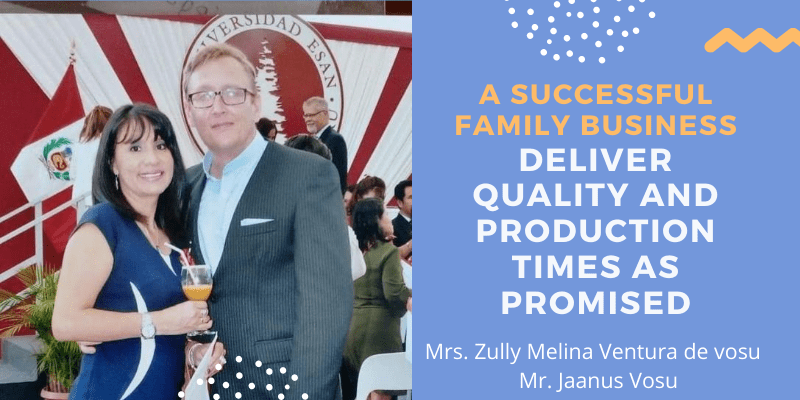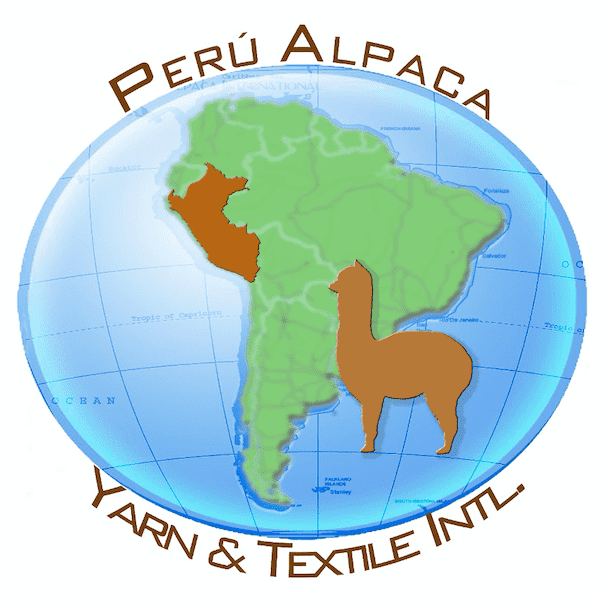Interview with Mr Jaanus Vosu – CEO of Peru Alpaca Yarn & Textile Intl
Fresh Air, Good Grass, Excellent Fibers; Love Story of Peruvian ALPACA
Who Are You Mr Vosu?
Actually You are not so far from the truth, saying “ Love story of the Peruvian Alpaca”. It is kind of love story. I am born in Estonia. Studied development aid in London. After finishing college, I enrolled for a 8 months contract for one of the development aid programs in Africa, Malawi. Finishing my contract, I moved back to London and felt in love with beautiful Peruvian women. Moved to Peru 2009. Unfortunately, we are not blessed with children, so I dedicate all my time to my company. My wife is helping part-time. She is a dedicated kindergarten teacher and last 7 years working as headmaster of the school.
Which countries are your export destination and which kind of products you export to these markets?
Peru Alpaca Yarn & Textile is 100% export company. Our scoured fiber and noils we export to Russia, alpaca tops Australia and Scotland, alpaca yarn Finland, United States.
You are not interested only in financial gain. Social responsibility programs are very close to your heart.
Company who is producing only money is a very poor company. I believe you are talking about hand spinning alpaca yarn club. The actual idea was generated by my wife. Peru is very much “macho” mentality country. Women’s role is raising kids and cooking dinner. Especially in the Peruvian mountains. We started a small club of 25 mom and grandmom working home, spinning yarn by hand. They spin by hand and dye the yarn with natural herbs and roots they find from the Peruvian Andes. We started 2018 and by now we have 75 members with capacity 550 kg a month. Yarn clients are high-end knitwear designers working with natural animal fibres.

Why Alpaca is considered as a Luxury fiber? Tell us more, what is so special about alpaca fiber?
If it comes to alpaca fiber, then Peru is without a doubt number one, in the world, farming alpacas. Approximately 87% of the world alpacas are based in Peru. Alpacas are Suri or Huacaya breeds, with Huacaya being by far the most common. Huacaya alpacas 80% and Suri 10% and 10% mixed breed Huacaya – Suri.
For me personally the coolest about alpaca fiber is, the fiber simply don’t burn. The fiber is very resistant to fire. For example in Australia, many companies are producing fire blankets for household use, from alpaca fiber. High micron fibres are not the best for garment production, perfect for fire blankets. Alpaca fiber is water repellent. Great use for outdoor clothing. Alpaca noils for the carpet industry. People who are allergic to lanoline should be able to wear alpaca fiber products. Alpaca fiber simply doesn’t have lanoline.

What is the difference between Huacaya alpaca and Suri alpaca?
Suri alpaca looks like Bob Marley’s rasta hair and Huacaya alpaca looks like Khloe Kardashian beautiful hair. Suri alpaca average fiber length 10-15 cm, Huacayo alpaca average fiber length is 7-9 cm. The life span for alpacas is 20 years approximately.
How do you evaluate Alpaca fiber production in Peru?
In Peru, we have at the moment approximately 85.000 alpaca farmers. Turning the year 2019, Peru exported alpaca fiber in total for 57. 48 million USD. Fibre exports mainly to China 59%, Italy 28%, UK 2%, South Korea 2%, Japan 2% and rest of the world 7%.
What do you think about the future of natural fibers and especially natural animal fibers?
I strongly believe that natural fiber is here to stay. We just have to learn to be more responsible producers and users. I don’t want to say, natural fiber “yes” and synthetic fiber “no”. We do need synthetic fiber market as well. I believe synthetic fiber production, can be some cases more environmentally friendly, than natural fiber production. My point is, we have to produce responsibly. Machinery run by solar energy, responsible waist management, paying taxes, fair salaries. Textile business have never been easy money.
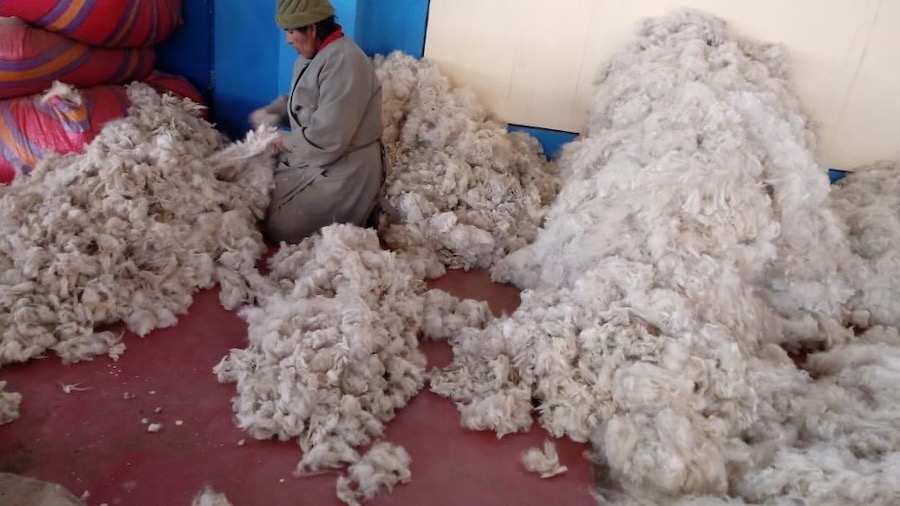
What happens after shearing the alpaca?
We take the fiber to sorting facility. We sort fiber by colour, length, fineness. Sorting is taking place manually.
How COVID-19 Pandemic affected Your company?
Sure it affects us as well. Sales are down 18%. To be honest, I was prepared way worse, considering we are in the luxury fiber business. The whole team is working from home and we take turns for fieldwork. Very likely this will be our routine for the whole year.
The government opened export channels beginning of July. Export working smoothly, so we have no problems to export.
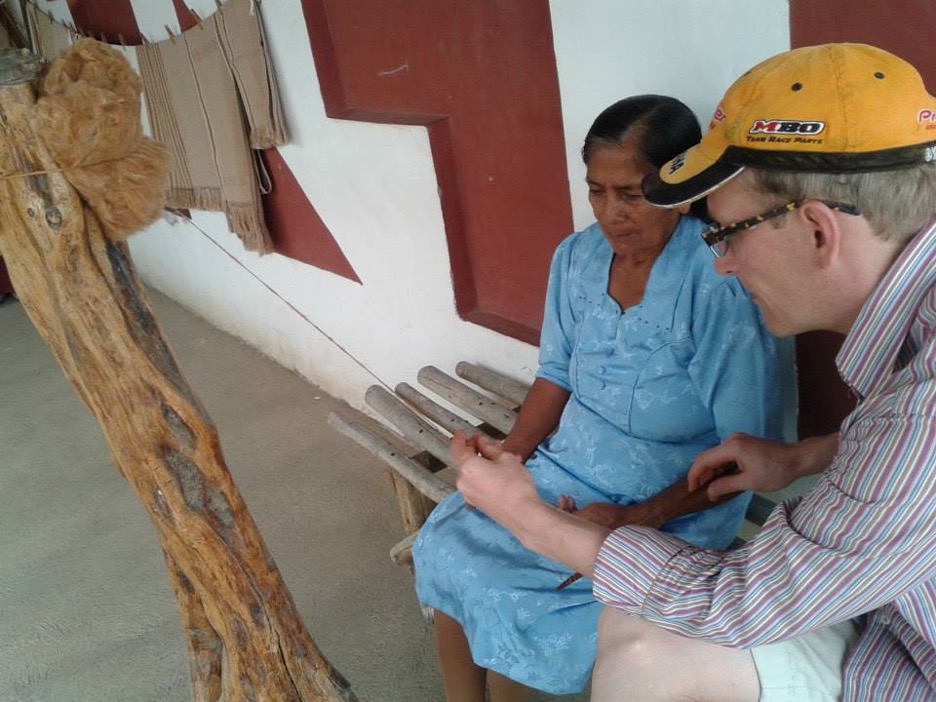
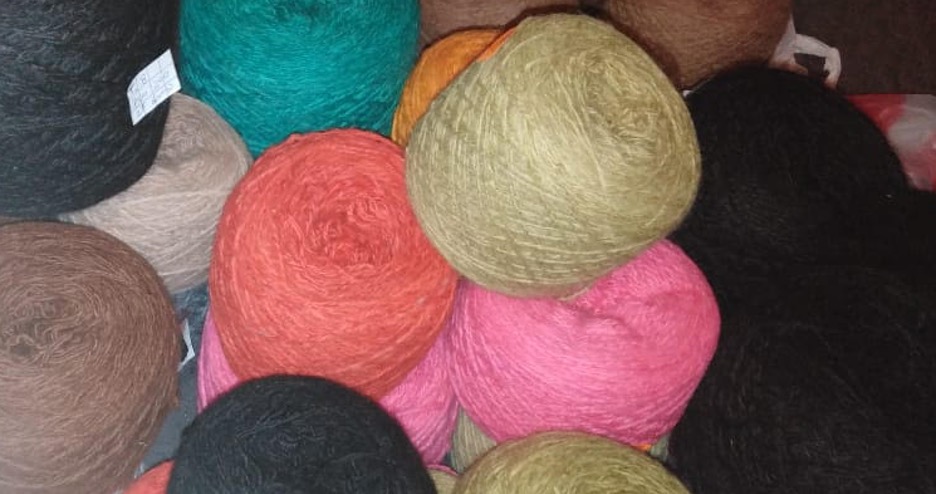
What kind of barriers and obstacles will face the Alpaca industry in Peru and South America? Is there any special development plan from the government to support alpaca farmers in Peru?
Alpaca has 22 natural color variations. We export only common colors like white, creamy white, light brown, dark brown, black. Trough the responsible breeding programs, we need to save all alpaca natural colors. Secondly, high protein grass. In the frames of social responsibility programs, we started a high protein grass project.
With the cooperation of our company and Estonian University of Agriculture, we developed high protein grass for Peruvian alpacas. We already made test cultivation with these seeds and it grows perfectly in Peruvian Andes. Good food is very important to improve alpaca fiber specifications.
SPECIAL OFFER: Sell one lote 1360 kg 2/16 nm 30% alpaca 70% acrylic. One colour only. dark grey. Price with shipping costs 19.80 USD/kg. Regular price 21.10 USD/kg FOB Peru.
About Peru Alpaca Yarn & Textile Intl
Peru Alpaca Yarn & Textile Intl is a family-owned company established in 2010. Our office located in Lima, Peru. Our main business area is alpaca scoured fiber, tops, alpaca noils and yarn. Company CEO Jaanus Vosu, who is running a company in the daily bases.
CONTACT:
Perualpaca2010@gmail.com
Phone:+51 991036364
Address: Street Monte Cipres 423,
Monterrico Sur Lima,Peru
zip code 15300





